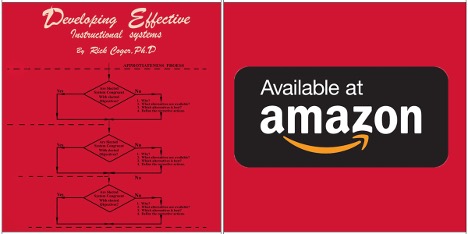In today’s rapidly evolving educational and corporate training landscape, the need for a systematic, evidence-based approach to instructional design has never been greater. Enter Rick Coger’s newly published Developing Effective Instructional Systems: A Practical Guide to Training Analysis, Design, Development, Implementation, and Evaluation, which promises to be an essential roadmap for educators, trainers, and organizational leaders determined to enhance learning outcomes and professional performance.
Drawing on years of hands-on experience and proven methodologies, Rick Coger presents a comprehensive, accessible framework that demystifies every stage of the instructional systems development process. From initial analysis and design to implementation and evaluation, Coger outlines a cohesive, practical pathway that bridges the gaps too often found in traditional training programs.
What makes this book stand out is its powerful combination of theory and application. Coger not only provides clear models and frameworks, but also delivers real-world examples that show how to translate strategy into practice. Readers will appreciate the no-nonsense, jargon-free style that speaks directly to professionals in the field, whether they are designing workplace training, developing classroom lessons, or managing large-scale learning initiatives.
At the heart of Coger’s approach is a deep respect for learners. He recognizes that effective instruction begins with a thorough understanding of learner needs, and he emphasizes data-driven decision-making to ensure that training is targeted, relevant, and sustainable. His book guides readers through identifying performance gaps, conducting meaningful needs assessments, and aligning instructional objectives with measurable outcomes.
Coger also addresses a critical and often overlooked challenge: how to evaluate and continuously improve instructional programs. His systematic evaluation strategies give readers tools to monitor effectiveness, adapt to changing circumstances, and make evidence-based improvements over time. This focus on evaluation makes the book an invaluable resource for long-term program success, rather than just a one-off instructional intervention.
Developing Effective Instructional Systems is more than just a how-to manual; it’s a testament to the power of well-designed learning experiences to change lives and transform organizations. As hybrid and remote learning environments become increasingly common, Coger’s insights provide an adaptable blueprint that can serve K–12 educators, corporate trainers, nonprofit organizations, and government agencies alike.
Already earning praise from early readers for its clarity and practical relevance, Coger’s book is poised to become a must-have reference on any instructional designer’s shelf. Its emphasis on measurable results, systematic processes, and learner-centered strategies makes it not only timely but absolutely vital for anyone charged with creating or overseeing effective training programs.
In a world where information is everywhere but deep learning often lags behind, Rick Coger’s contribution offers a welcome antidote. With Developing Effective Instructional Systems, professionals finally have a resource that blends vision with actionable steps, ensuring that training and education truly deliver on their promise.

